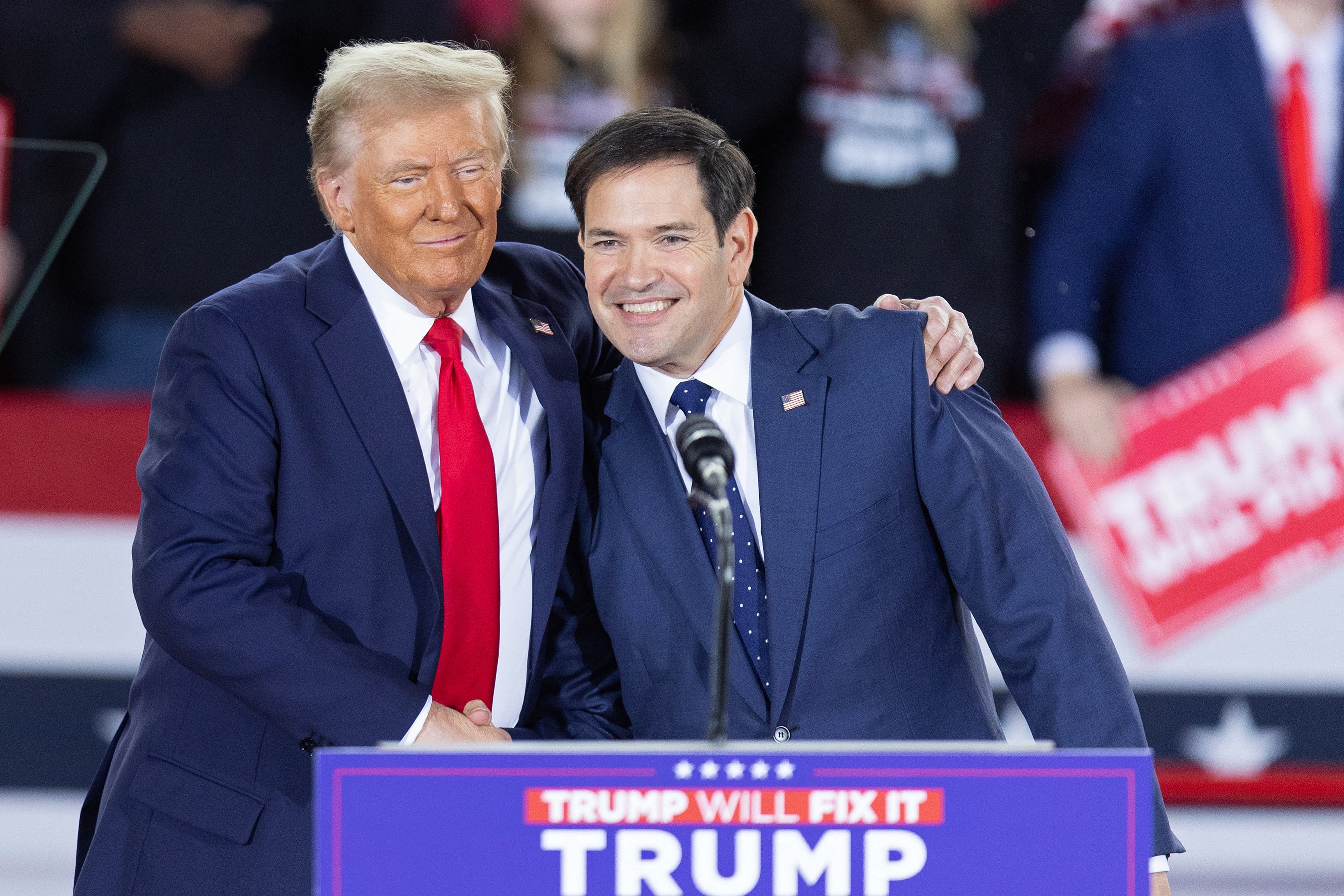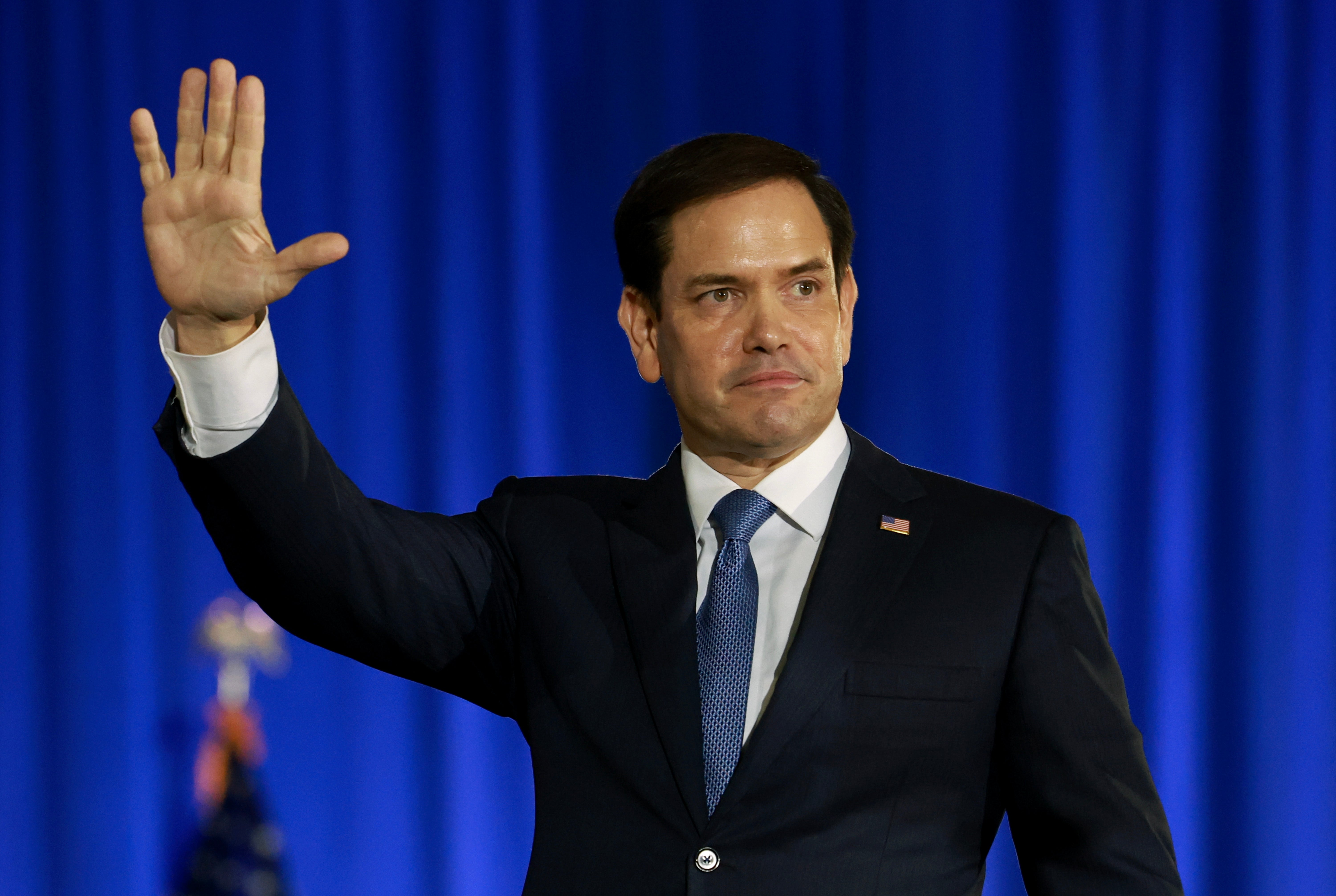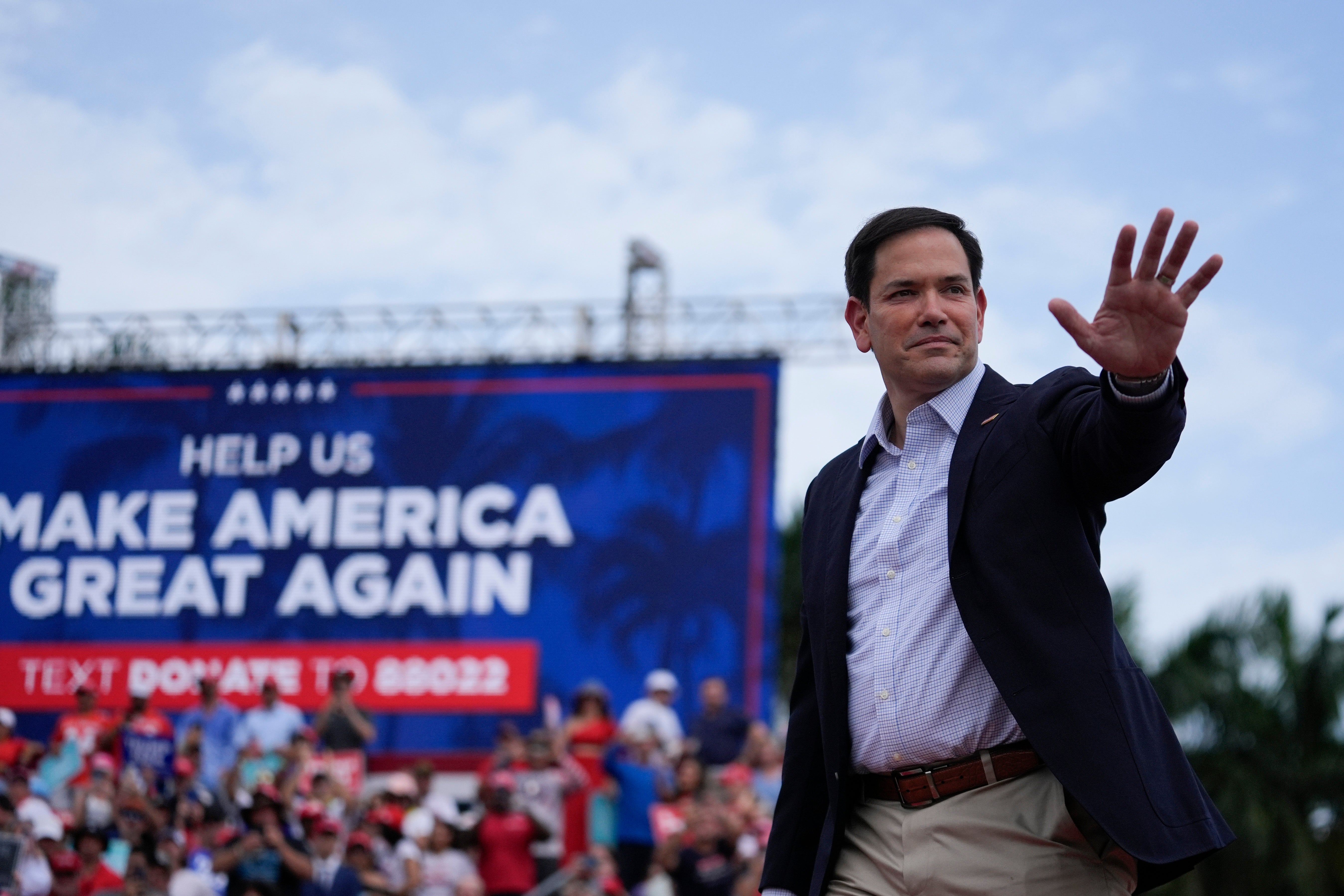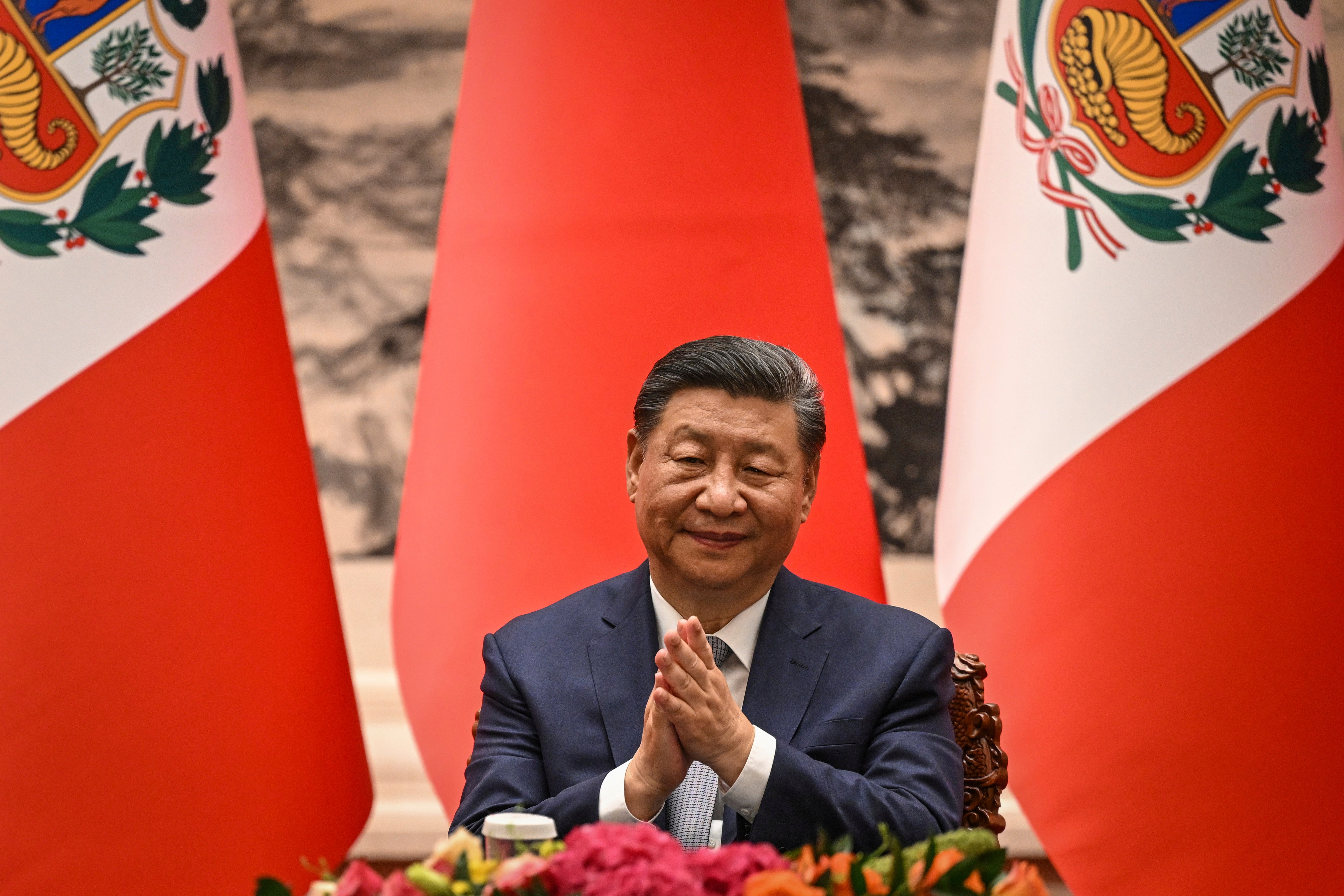Trump’s pick of Marco Rubio as secretary of state ignites fears of fiercer US-China rivalry
Florida senator, who sees China as America’s No 1 enemy, will be a major headache for Beijing but will also present it an opportunity, Shweta Sharma reports
Your support helps us to tell the story
From reproductive rights to climate change to Big Tech, The Independent is on the ground when the story is developing. Whether it's investigating the financials of Elon Musk's pro-Trump PAC or producing our latest documentary, 'The A Word', which shines a light on the American women fighting for reproductive rights, we know how important it is to parse out the facts from the messaging.
At such a critical moment in US history, we need reporters on the ground. Your donation allows us to keep sending journalists to speak to both sides of the story.
The Independent is trusted by Americans across the entire political spectrum. And unlike many other quality news outlets, we choose not to lock Americans out of our reporting and analysis with paywalls. We believe quality journalism should be available to everyone, paid for by those who can afford it.
Your support makes all the difference.Donald Trump belittled him as “Little Marco” and “choke artist”, only to nominate him as his US secretary of state. The incoming president even described Marco Rubio as “a strong advocate for our nation, a true friend to our allies and a fearless warrior who will never back down to our adversaries”.
Rubio’s appointment as arguably the most powerful diplomat in the world will likely reshape American foreign policy towards allies and rivals alike—and dealing with China’s continued economic, diplomatic and military rise is set to be one of his top priorities.
That Trump moved swiftly to staff his foreign policy and national security team with China hawks is an indication that relations between the two superpowers will deteriorate further. Alongside Rubio as secretary of state, the team, although it’s still taking shape, already includes Congressman Mike Waltz as national security adviser and John Ratcliffe as head of the Central Intelligence Agency.
Trump is making “no secret of his intention” to take a hard line on China, says Swaran Singh, diplomacy and disarmament expert at Jawaharlal Nehru University in Delhi.
This is evident from his threat to impose 60 per cent tariffs on Chinese imports and his decision to pick China hawks for his cabinet, Singh adds.
“Rubio’s appointment to one of the most important positions is significant,” he tells The Independent. “There is palpable anxiety in China because they will not only have to deal with an unpredictable Trump but a myopically China-focused administration.”

All of Trump’s picks thus far are either focused on security and military in their thinking or are China hawks or critics to varying degrees, he argues.
“The focus of Trump 2.0 would be on MAGA, to Make America Great Again, and in that the clear challenge is China,” Singh says.
Rubio, 53, will be the first sitting US secretary of state, once he is confirmed by the Senate, to have been sanctioned by Beijing.
Rubio was first elected to the Senate in 2010 and served on its Foreign Relations Committee, where he presented himself as a foreign policy hawk and an outspoken critic of China, Iran, Venezuela and Cuba in particular.
He was sanctioned by Beijing along with other US senators in 2020 for introducing measures against senior Chinese officials over their alleged human rights abuses of ethnic minorities, particularly the Uyghurs, a predominantly Muslim group in Xinjiang.
He played a key role in introducing legislation, like the Uyghur Forced Labor Prevention Act, aimed at preventing goods allegedly made with forced labour in Xinjiang from entering the US and accused Beijing of a “grotesque campaign of genocide” against the Uyghurs.
He was sanctioned the second time for advocating US sanctions against Chinese officials for their response to the pro-democracy protests in Hong Kong.
Rubio may have seemed unbothered about the largely symbolic Chinese sanctions that prevent him from travelling to the country, but it remains to be seen if they will hinder his ability to conduct diplomacy with Beijing.

He openly and aggressively pitched for a more hostile policy towards China and many of his positions went on to become more mainstream in both Republican and Democratic parties.
These included a push for an industrial policy to enable the US to get the upper hand in competition with China’s state-directed economy.
Rubio has described China as "the largest, most advanced adversary America has ever faced" and warned against complacency.
He "believes in his heart that China is an enemy of the United States", says David Firestein, a former US diplomat specialising in US relations with China. "That’s going to colour everything he does with respect to China."
But Chintamani Mahapatra, chair of the Kalinga Institute of Indo-Pacific Studies, argues that Rubio will need to temper his positions in his new role.
“There are all indications that the Trump administration is going to be tougher on China on not just economic issues but even on political and security issues after the first term saw an economic cold war between US and China,” he tells The Independent.
“While Rubio has supported anti-China legislation in the past, as secretary of state he will likely take a hawkish approach to China but ultimately aim for compromises that benefit America. His focus will be on ‘America first’ and American economic interests.”

Carl-Johan Carlstedt, a geopolitical and security analyst at the intelligence firm Dragonfly, says Rubio will be a headache for Xi Jinping’s government due to his advocacy for US allies like Taiwan, for human rights in China, and for imposing stringent economic measures against Beijing.
“As secretary of state, he will probably be more confrontational to Beijing than the Biden administration,” he tells The Independent.
“The upcoming administration will probably expand its use of targeted sanctions and export controls on China.”
In response, China will almost certainly strengthen efforts to dominate the supply chains of critical technologies and take steps to “demonstrate its red lines on Taiwan to the Trump administration”, Carlstedt says.
“This includes by expanding its state subsidies and industrial espionage towards the critical technology sectors and by mounting large military exercises around Taiwan.”
Rubio and Trump haven’t always been allies. When contesting the Republican presidential primary in 2016, they exchanged acerbic attacks.
Rubio berated Trump for the size of his hands, calling him a “con artist” and “vulgar”. Trump responded by calling him “choke artist” and “Little Marco”.
Their relationship improved during Trump’s time in the White House and Rubio later downplayed the acrimony, saying: “It was a campaign”.
In a statement on his nomination by Trump, the Florida senator said he will “work every day” to enforce the next president’s foreign policy agenda. “Under the leadership of President Trump we will deliver peace through strength and always put the interests of Americans and America above all else.”

Singh argues that Trump is “more prepared” and “much clearer” this time about what he wants to do than he was in his first term from 2017 to 2020.
The new Trump administration, however, also presents an opportunity for China to expand its influence and for Xi to emerge as a more credible leader, he argues.
“Trump’s ‘America First’ foreign policy in the next four years is likely to be seen as not really advocating multilateralism. And during his last term we saw him walking out of five international arrangements, including the Iran deal and the UN Human Rights Council,” he says.
China will seek to exploit this potential vacuum and establish its global leadership by strengthening ties with nations in Asia, Africa and Latin America as a counterbalance to America’s more isolationist approach, he argues.
One of the main sources of frustration for Beijing will be Rubio’s strong support for Taiwan, which China regards as a breakaway province.
Rubio advocates for strengthening US-Taiwan relations, including pushing for a free trade deal and promoting unrestricted interactions between US and Taiwanese officials.
It is anticipated that Taiwan will make new arms purchases after Trump takes office. In his first term, Trump approved more than $18bn in arms sales for Taiwan, compared to $7.7bn under Joe Biden.
Steve Tsang, director of the China Institute at SOAS, believes that Beijing may try to sidestep Rubio and seek direct engagement between Xi and Trump or with other senior US officials.
“If that doesn’t work, then I think we’re going to get into a much more regular escalation of a bad relationship,” he says.

Join our commenting forum
Join thought-provoking conversations, follow other Independent readers and see their replies
Comments